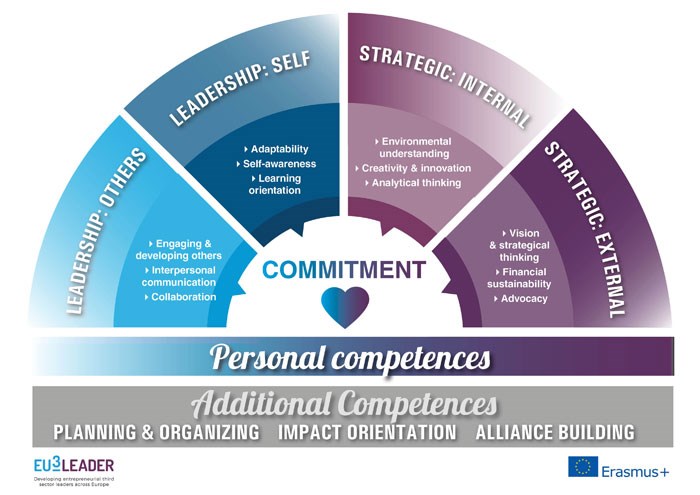
We move away from a personalistic approach to a leader towards a model of shared leadership integrated into the team, and this lower the pressure that is placed on a leader.
Today there are countless books and conferences dealing with the topic of leadership. Many of them take a prominent USA-based approach and tend to highlight the role of a leader as a person (individualism) with knowledge, abilities and more than 100 skills in all fields (over-qualified). We could even say they are treated as semi-Gods.
I personally believe this approach to be totally off-course, since even is the intentions are meant to be constructive, it inevitably leads to a certain degree of frustration in the reader/listener when they are unable to acquire the 100 skills and abilities that are required from them.
In order to find a real answer to the skills that a good leader in the third-sector should have, at the Eu3Leaders project we have been working on drafting a European competence framework of third sector leadership. Precisely, one of the differential elements is that one single person does not need all of the competences, it can perfectly be a person from their surrounding (someone in their team, work colleagues, or friends). This approach moves away from a personalistic approach to a leader towards a model of shared leadership integrated into the team, and this lower the pressure that is placed on a leader.
In total, there are 16 competencies distributed at three levels.

At the centre we would find commitment, represented by a heart, which is the fuel that moves the rest.
At another level, we would find a semi-circle divided into four groups and composed of three competences each. Those in blue represent leadership competences (own and towards others) and those in purple, representing strategic competences (both internal and external)
A third level (Additional competences) are competences that are not essential to a leader, but that are required from somebody around the leader; there are three of these: Planning and Organizing, Impact Orientation and Alliance Building.
To conclude, I would like to say that we are working on preparing an online self-assessment tool for these competences. This tool will allow determining the level of competences of the person undergoing assessment and compare this with other European leaders.



Add new comment